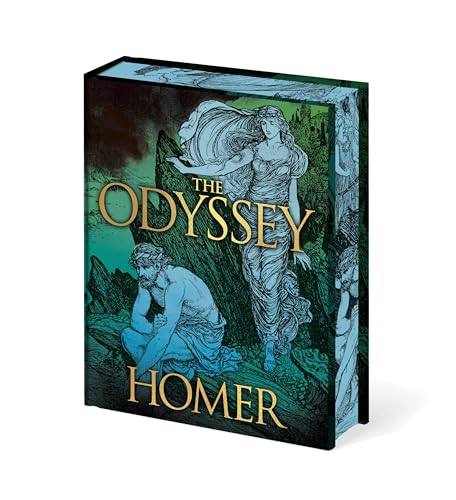
In his perilous journey home after the Trojan War, Odysseus must pass through the land of the Cyclopes, encounter Circe the Enchantress, and face the terrible Charybdis and the six-headed serpent Scylla. Little is known about the ancient Greek oral poet Homer, the supposed eighth-century BC author of the world-read Iliad and his later masterpiece The Odyssey. These classic epics provided the basis for Greek education and culture throughout the classical age and formed the backbone of humane education through the birth of the Roman Empire and the spread of Christianity. If Homer did in fact exist, this supposedly blind poet was from some region of Greek-controlled Asia-Minor and recited his poems at festivals and political assemblies. The story of The Odyssey follows the journey of Odysseus as he travels home to Ithaca after the Trojan War. Narrated by John Lescault.
Author

In the Western classical tradition, Homer (Greek: Ὅμηρος) is considered the author of The Iliad and The Odyssey, and is revered as the greatest of ancient Greek epic poets. These epics lie at the beginning of the Western canon of literature, and have had an enormous influence on the history of literature. When he lived is unknown. Herodotus estimates that Homer lived 400 years before his own time, which would place him at around 850 BCE, while other ancient sources claim that he lived much nearer to the supposed time of the Trojan War, in the early 12th century BCE. Most modern researchers place Homer in the 7th or 8th centuries BCE. The formative influence of the Homeric epics in shaping Greek culture was widely recognized, and Homer was described as the teacher of Greece. Homer's works, which are about fifty percent speeches, provided models in persuasive speaking and writing that were emulated throughout the ancient and medieval Greek worlds. Fragments of Homer account for nearly half of all identifiable Greek literary papyrus finds.